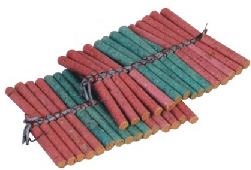Recollections
This is an area for some lighter historical content
- a scrapbook of various recollections; drawn from other articles; elaborations on other content; and other ramblings.

- Details
- Written by: Richard_McKie
- Parent Category: History
- Category: Recollections
- Hits: 52592
We children were almost overcome with excitement. There had been months of preparation. Tree lopping and hedge trimmings had been saved; old newspapers and magazines stacked into fruit boxes; a couple of old tyres had been kept; and the long dangerously spiky lower fronds from the palm trees were neatly stacked; all in preparation.

- Details
- Written by: Richard_McKie
- Parent Category: History
- Category: Recollections
- Hits: 36624
All my ancestors are now dead. I'm an orphan. So for this history I've had to rely on my recollections a small pile of documents left by my mother. These include short biographies of several of her relatives. Following the female line; these recollections briefly span the two world wars; to the present.
- Details
- Written by: Richard_McKie
- Parent Category: History
- Category: Recollections
- Hits: 38644
Introduction
The following article presents a report by Jordan Baker, as part of her history assignment when she was in year 10 at North Sydney Girls’ High School. For this assignment she interviewed her mother, grandmother and great-grandmother about their lives as girls; and the changes they had experienced; particularly in respect of the freedoms they were allowed.
- Details
- Written by: Richard_McKie
- Parent Category: History
- Category: Recollections
- Hits: 113342
These recollections are by Ross Smith, written when he was only 86 years old; the same young man who subsequently went to war in New Britain; as related elsewhere on this website [read more...]. We learn about the development of the skills that later saved his life and those of others in his platoon. We also get a sense of what it was to be poor in pre-war Australia; and the continuity of that experience from the earlier convict and pioneering days from which our Australia grew. *
- Details
- Written by: Richard_McKie
- Parent Category: History
- Category: Recollections
- Hits: 47354
- Introduction
The accompanying story is ‘warts and all’. It is the actual memoirs (hand written and transcribed here; but with my headings added) of Corporal Ross Smith, a young Australian man, 18 years of age, from humble circumstances [read more...] who was drawn by World events into the Second World War. He tells it as he saw it. The action takes place near Rabaul in New Britain.
